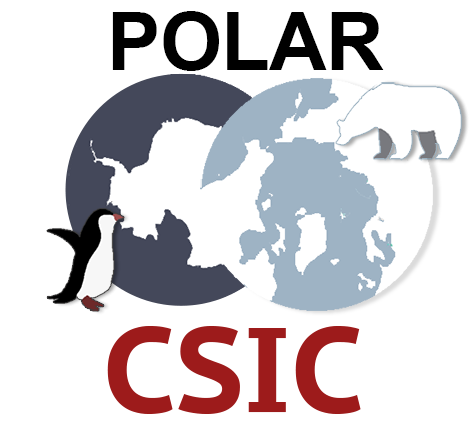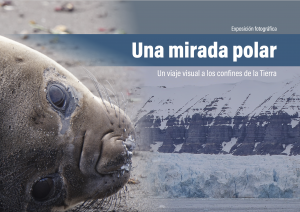The Arctic and Antarctic: Earth's climate drivers
Polar areas are responsible for the planet’s climate through their influence on the generation and maintenance of marine currents that distribute cold waters to different latitudes. Changes occurring in polar areas have a significant impact on the planet, directly affecting climate dynamics at other latitudes and global climate processes.
Currently, Arctic and Antarctic areas are suffering severe changes due to their high sensitivity to global climate change. Compelling evidence includes, among others, accelerated thawing of glaciers and permafrost, and changes to the extent and thickness of sea ice. In the Arctic, these lead to environmental changes that impact local ecological systems and their societies, in addition their access to natural reserves. In fact, permafrost thawing is releasing methane and other short-lived hydrocarbons to the atmosphere, with a devastating effect on greenhouse gas concentration. This exacerbates the rise in Earth’s temperature, specifically its biosphere. In Antarctica, these environmental changes may have an effect on the diversity and preservation of its biota, and may also modify its role in regulating global climate processes.
PTI POLARCSIC origin
The creation of the Interdisciplinary Thematic Platform: “Polar Zone Observatory: Horizon 2050” originates from the interest in scientific polar research by the numerous CSIC research groups from various disciplines actively working in the Antarctic and Arctic. The synergy between the POLARCSIC participating groups is expected to increase and improve scientific results while embracing an interdisciplinary approach.
The relevance of studying polar zones is related to the need to understand and evaluate:
(1) the severe changes that are occurring in the Arctic and Antarctic due to climate change;
(2) how these changes are impacting the rest of the planet, for example how they directly affect general climatic, oceanographic, and environmental dynamics of “extrapolar” latitudes;
(3) how anthropogenic activities and natural resource exploitation in polar areas have, or might have, significant negative short-, mid-, and long-term impacts.
The 2050 horizon has been selected according to the verification point established by the Intergovernmental Panel for Climate Change (IPCC, http://www.ipcc.ch/ ) to validate forecasts by the end of the 21st century.







